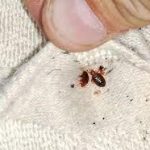Human papillomavirus (HPV) is a group of viruses that are extremely common worldwide and affect your skin and moist membranes, including the cervix, anus, mouth and throat. There are more than 100 types, of which at least 13 are high risk and can cause cancer. The virus is generally transmitted through sexual contact and is the most common viral infection of the reproductive tract. Sexual penetration is not required, as skin to skin genital contact is a recognised mode of transmission.

Infection
HPV infections generally clear up within a few months without any intervention; however, persistent infection of a specific type can lead to precancerous lesions. If these are left untreated, they can progress to cervical cancer.
Symptoms
The symptoms in women are genital warts, which appear mostly on the vulva. They can also appear near the anus, on the cervix, or in the vagina. A symptom for men is genital warts on the penis and scrotum or around the anus. Genital warts have been described as looking like small pieces of cauliflower – small fleshy growths that can appear singularly or in clusters. Other HPV infections can cause minor problems, cheap prednisone 20mg such as verrucae and skin warts.

Vaccination
There are currently two vaccinations available that protect against HPV 16 and HPV 18, which are known to cause at least 70 per cent of cervical cancers. These vaccines also provide cross-protection against other less common types of HPV. They have been clinically tested and are both safe and effective in preventing infection.
All girls from the age of 12 are eligible to receive the free vaccine, which is administered in two doses six months apart. These vaccines do not protect against other sexually transmitted infections, such as chlamydia. There are clinics where you can obtain information on chlamydia and chlamydia testing kits in London, such as https://www.bexleysexualhealth.org/chlamydia_screening/.
Prevention
Using condoms can reduce your risk of infection but does not offer complete protection. If you have been treated for genital warts, you should use a condom for three to six months after the treatment has been completed.
Testing
HPV testing is included in the cervical screening tests that are offered to all women aged 25-64. Unfortunately, there are currently no tests available for men – often with no visible symptoms, it is difficult to diagnose.










